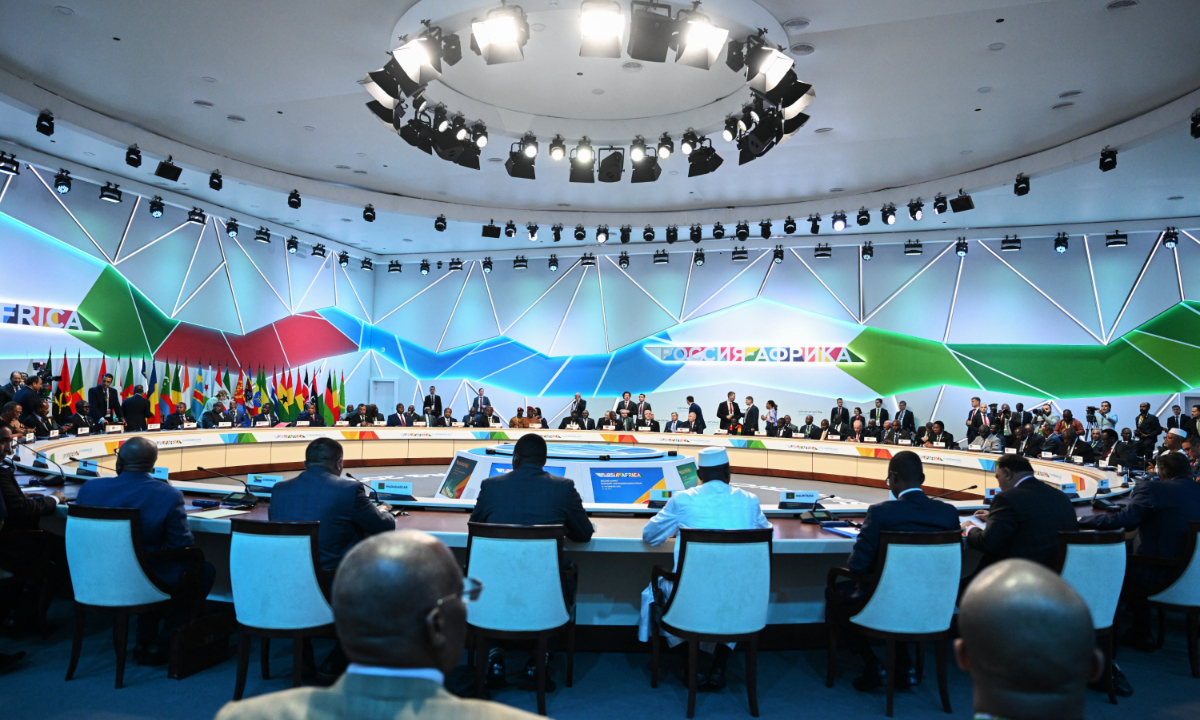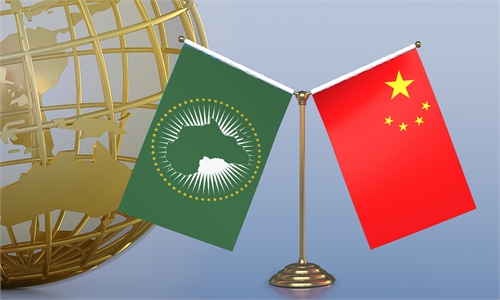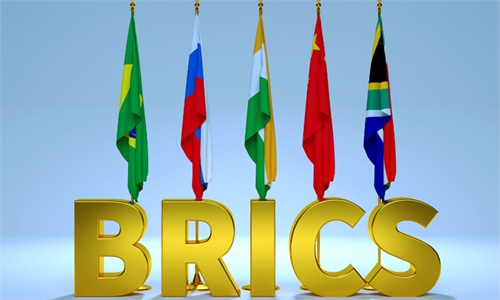
Photo:AFP
St. Petersburg hosted the second Russia-Africa Summit from July 27-28 that was attended by 17 heads of state from that continent. They and the other participants, which also included five vice presidents and four heads of government alongside many national delegations, bravely defied Western pressure to come to this event. Russian officials earlier claimed that the US and the EU were trying to talk their guests out of going. This allegation was lent credence by the publication of hostile Western media editorials.
The overwhelming majority of African countries participated in some capacity after only five countries declined to send representatives to the summit. Recalling that a little more than half of the continent voted against Russia at the United Nations General Assembly (UNGA) at least once since the start of its special operation in Ukraine, this means there were countries that still decided to expand ties with Russia in spite of their disagreements over the situation in Eastern Europe.
Western political and media pressure failed to ruin the event because African countries appreciate the ways in which Russia can help them strengthen their sovereignty during these unpredictable times. The erstwhile Soviet Union supported their freedom movements and comprehensively assisted many of them with building their statehood afterwards. Regrettably, the Russian Federation struggled with many domestic challenges after independence and wasn't able to resume this international role until recently.
President Vladimir Putin sought to make up for lost time during the first Russia-Africa Summit that was held in October 2019, but the COVID-19 pandemic and then the NATO-Russian proxy war in Ukraine impeded implementation of their action plan. Be that as it may, Russian-African ties didn't deteriorate in the nearly four years since their last multilateral meeting, and it can actually be argued that Russia became more important to some of its African partners during this period than at any time since 1991.
The West's anti-Russian sanctions that were imposed after the start of its special operation in Ukraine caused problems for its African partners, which weren't resolved in spite of the Black Sea Grain Initiative that Moscow recently declined to extend after it accused the West of not fulfilling its part of the deal. Nevertheless, Russian President Putin promised during the latest summit to ship the neediest of them grain free of charge by year's end.
This brings the analysis around to discussing other aspects of the event since it concerned more than just strengthening Russian-African agricultural cooperation. Consistent with the theme of "Peace, Security and Development," military ties were discussed bilaterally with interested countries behind closed doors, but the details weren't publicly disclosed due to their sensitivity. Additionally, academic, energy, financial, industrial, institutional, media and other forms of cooperation were also discussed.
What connects everything together is that the comprehensive expansion of Russian-African relations in each of these spheres advances President Putin's vision of helping his country's partners on the continent "strengthen national and cultural sovereignty" like he pledged to do leading up to the summit. He's regularly spoken about this concept since the start of the special operation, which he considers to be the prerequisite for mutually beneficial partnerships.
It deserves to be mentioned at this point that not a single African country jumped on the West's anti-Russian sanctions bandwagon despite immense pressure to do so. This includes those who voted against it at least once at the UNGA. Never before had all of Africa come together like this. Its countries clearly wanted to show the international community that they're truly independent and will no longer let their former colonizers dictate their policies.
The West was shocked by this unprecedented display of sovereignty, which is why its officials and media began waging an information warfare campaign against Russia in a desperate attempt to convince African countries to sanction it. Examples include false claims that its military advisors are responsible for atrocities and lying that Russia is weaponizing famine in Africa. No African country was swayed into sanctioning Russia, however, not even those that didn't attend the latest summit.
They all know that their objective national interests are best served by keeping their strategic options open and not burning bridges with any of their partners no matter the external pressure put upon them. Russia is regarded as a historically reliable partner with whom ties can be expanded in whatever sphere any given African country wants, which can help diversify from their previously disproportionate dependence on the West while complementing their efforts to cultivate even closer ties with China.
Russia doesn't attach strings to its agricultural and military aid, nor does China attach any to its infrastructure investments and market access, with these forms of cooperation combining to strengthen African states' sovereignty. Moreover, these major countries are also sincere in their desire to improve people-to-people ties, especially academic exchanges and skills training. The reason for this is that they envisage Africa as a whole functioning as an independent pole in the emerging Multipolar World Order.
Therein lies the primary difference between the US and the EU on one hand and Russia and China on the other. The first pair attaches strings of some sort to all forms of aid in order to keep Africa subordinated to them, while the second pair never attaches any of the aforesaid since it wants to empower Africa's rise. The US and the EU can't countenance an international order that they don't lead, while Russia and China are striving to build a fair and just order where all countries are equal regardless of their size.
This insight enables one to better understand the significance of the second Russia-Africa Summit, which is intended to function as Russia's complementary version of the Forum on China-Africa Cooperation. Both events take place at multi-year intervals, thus providing enough time to make progress on their action plans. Although Russia is comparatively late in re-engaging with Africa, it more than makes up for this delay with the strategic role that it plays in ensuring its partners' agricultural and military needs.
The author is a Moscow-based American political analyst. opinion@globaltimes.com.cn


